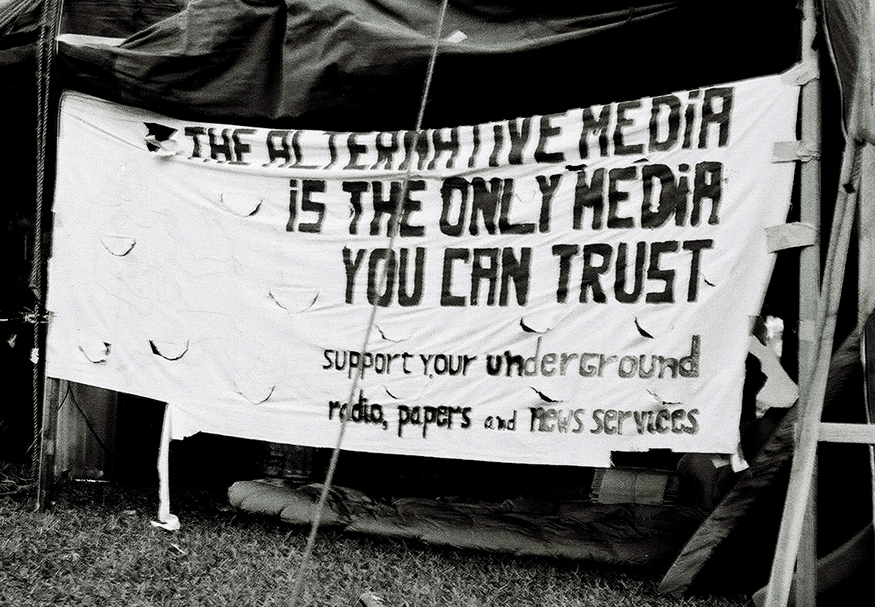Featured Photo: 11 September 1973 through 11 September 2023 – 50 Years later the legacy of the Pinochet dictatorship continues

The following is an account from Orin Langelle who is the co-founder of GJEP, a photojournalist, and the Director of Langelle Photography.
I first visited Chile in 2004 crossing the Andes from Argentina into Chile following the UN Climate Conference in Buenos Aires. Anne Petermann and I took a bus through the pampas, over the mountains into Chile, then on a ferry that crossed the glacier-fed Lago Panguipulli to the town named after the lago. It didn’t take me long to fall in love with Chile – its lakes, rivers, mountains, volcanoes, araucaria forests, and people.
But in 2019, when Anne and I took our fifth trip down to Chile, we found ourselves in the midst of a major national uprising with people across the country mobilizing for change. We documented the brutality of the government against the people protesting for change. The people were demanding the abolition of Neoliberalism and the rewriting of Chile’s Constitution, a holdover from the Pinochet dictatorship. We documented and took part in street protests in Santiago and Temuco. We also traveled to Wallmapu, the ancestral territory of the Mapuche, under attack for re-occupying lands stolen from them for industrial tree plantations during the Pinochet regime through the passage of Forest Ordinance 701 (see box below). What we saw on this trip to Chile is documented in my Chile: Peoples’ Uprising / An Exhibit of Images from the Front Lines.
But in order to understand what Chile is today, the past needs to be revisited.
General Augusto José Ramón Pinochet took power in Chile following a United States-backed coup d’état, with the help of the CIA, on 11 September 1973, that overthrew the democratically elected socialist Unidad Popular government of President Salvador Allende and ended civilian rule.
The support of the United States was crucial to the coup and the consolidation of power afterward. In December 1973, the ruling military junta appointed Pinochet Supreme Head of the nation by joint decree. From the start of the new military dictatorship harsh measures were implemented.
The passing of the Forest Ordinance 701 (Decreto Ley 701) in 1974, during the reign of General Augusto Pinochet, subsidized the expansion of tree plantations, giving away the National Forestry Corporation. This initiated the quick expansion of monoculture plantations of pine and eucalyptus trees for paper manufacturing and timber. Since then, many corporations have bought land and destroyed the once abundant native forests.
According to the Chilean government, under the Pinochet dictatorship the official number of deaths and disappearances stands at 3,095. Up to 80,000 people were imprisoned and as many as 30,000 tortured. The well-loved Chilean folk musician Victor Jara was one of those tortured and murdered.
Under the influence of the free market-oriented neoliberal “Chicago Boys”; from the U.S., the dictatorship implemented economic liberalization, including banning of trade unions and privatization of social security and hundreds of state-owned enterprises.
In the U.S., September 11 has been somewhat eclipsed in the last two decades by another notorious anniversary, but it remains a date etched in Chileans’ minds: in 1973, this was the day General Augusto Pinochet seized power from the democratically elected Salvador Allende. Fifty years after that sudden coup, and 34 years since its return to democracy, Chile is still recovering from the effects of Pinochet’s brutal rule–and still labors under his Constitution.
In Chile and other countries of the Americas, as well as Africa, Indonesia and elsewhere, industrial timber plantations are expanding as the demand for pulp and paper rapidly increases, especially for disposable packaging. Every year since 2004 social movements across the world hold an International Day of Action Against Industrial Tree Plantations, and this year activities are being organized by many global networks including World Rainforest Movement and the Campaign to STOP Genetically Engineered Trees.
Also listen to the Breaking Green Podcast: People’s Uprising in Chile with Alejandra Para
In this episode of Breaking Green, host Steve Taylor talks with long-time activist Alejandra Parra about her experiences during the People’s Uprising in Chile and the hopes of recognizing environmental, social and economic reforms.
For an interesting take on the 1973 coup, please see Vijay Prashad’s article What if There Had Been No Coup on Chile in 1973?
This year Global Justice Ecology Project is celebrating our 20th Anniversary. As part of this year-long celebration, we will be posting photos by co-founder Orin Langelle, Director of Langelle Photography,



